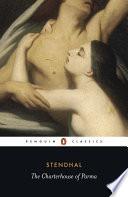Quotes from book
The Charterhouse of Parma

The Charterhouse of Parma is a novel by Stendhal published in 1839. Telling the story of an Italian nobleman in the Napoleonic era and later, it was admired by Balzac, Tolstoy, André Gide and Henry James. It was inspired by an inauthentic Italian account of the dissolute youth of Alessandro Farnese. The novel has been adapted for opera, film and television.

Quand je devrais acheter cette vie de délices et cette chance unique de bonheur par quelques petits dangers, où serait le mal? Et ne serait-ce pas encore un bonheur que de trouver ainsi une faible occasion de lui donner une preuve de mon amour?
Source: La Chartreuse de Parme (The Charterhouse of Parma) (1839), Ch. 20

“Wounded pride can take a rich young man far who has been surrounded by flatterers since birth.”
La vanité piquée peut mener loin un jeune homme riche et dès le berceau toujours environné de flatteurs.
Source: La Chartreuse de Parme (The Charterhouse of Parma) (1839), Ch. 13

“A forty-year-old woman is only something to men who have loved her in her youth!”
Une femme de quarante ans n'est plus quelque chose que pour les hommes qui l'ont aimée dans sa jeunesse!
Source: La Chartreuse de Parme (The Charterhouse of Parma) (1839), Ch. 23

Source: La Chartreuse de Parme (The Charterhouse of Parma) (1839), Ch. 7
Context: The pleasures and the cares of the luckiest ambition, even of limitless power, are nothing next to the intimate happiness that tenderness and love give. I am a man before being a prince, and when I have the good fortune to be in love my mistress addresses a man and not a prince.